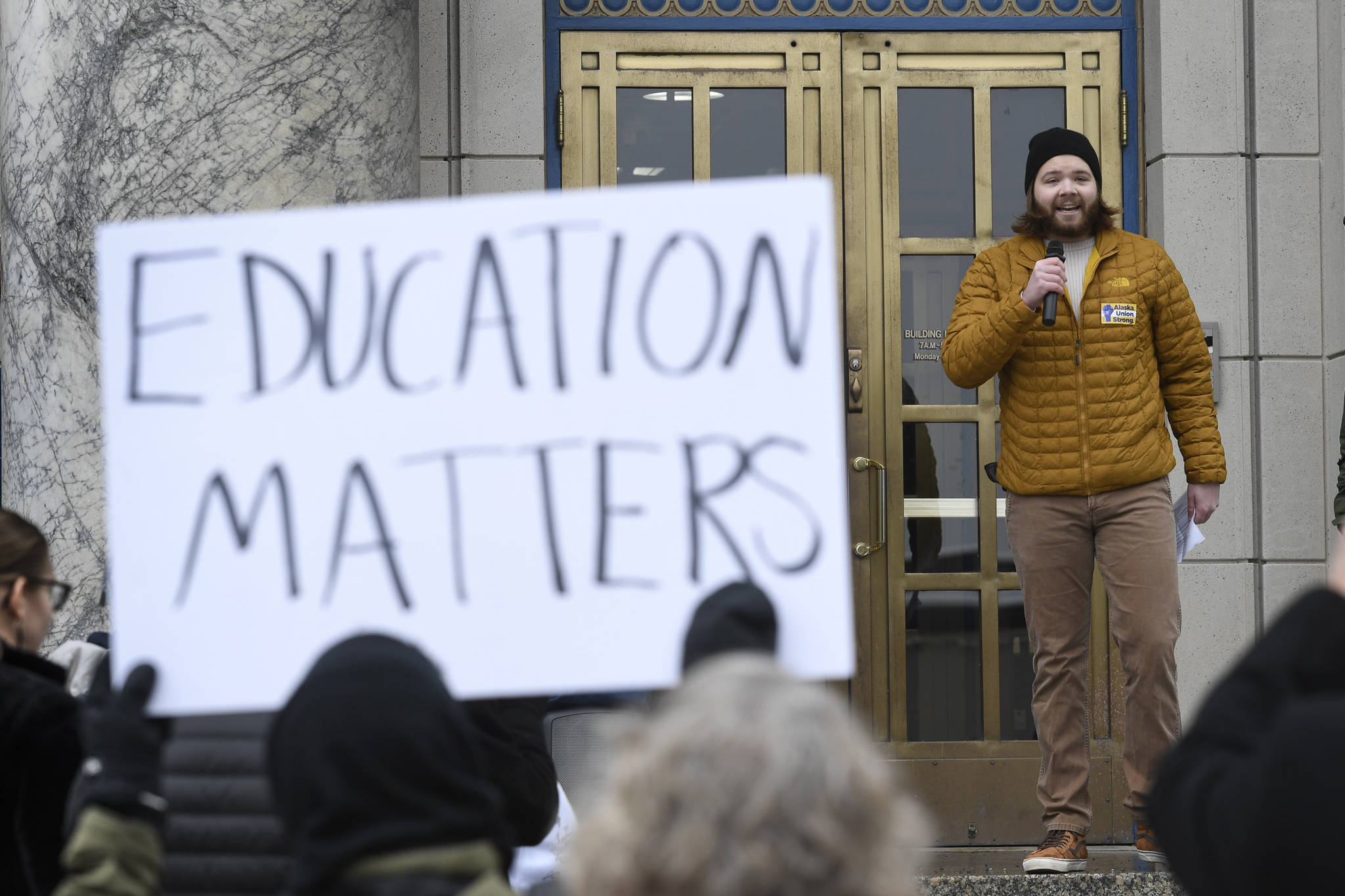Gov. Mike Dunleavy’s quest to balance the state budget reached its first milestone. On Aug. 19, Dunleavy achieved what very few thought was possible – almost $680 million in hard cuts in finalizing Alaska’s FY 2020 budget.
While this was unprecedented, it only constituted the first step in the primary goal he advocated during his gubernatorial campaign – a sustainable budget.
After all the legislative special sessions, public hearings and political fights in 2019, it’s hard to imagine going through a contentious budget battle again next year.
However, it appears that we will. Yet, judging from much of the reaction around the state, not many believe it.
Alaskans’ debate on the size of the Permanent Fund Dividend has dominated the discussion in the hope that it could, by itself, resolve all of Alaska’s budget issues.
In some ways, though, it was a diversion. Even with the currently reduced Permanent Fund Dividend of approximately $1,600, Alaska must deal with a $730 million budget deficit next year.
Granted, final decisions on the current cuts and PFD amount were not determined until recently.
But hoping to forestall the inevitable by mounting a recall effort — or thinking that ratcheting up taxes on the oil industry will save us — is wishful thinking.
Suffering from denial, many school districts and municipalities have been reluctant to take the necessary measures to prepare for the continuing pressure on their budgets.
The mistake some local governmental entities will make is to assume that Alaskans will accept higher property taxes, sales taxes or debt before considering further cuts or less onerous revenue measures.
Let’s face it, we Alaskans have been living beyond our means for many years and our local governments, school districts and, to a degree, even some nonprofits have escaped serious scrutiny of their overhead, adherence to mission and efficiencies.
As a local taxpayer, wouldn’t you want to make sure unnecessary or wasteful operations or practices were identified, curtailed or eliminated before you agreed to a hike in taxes? Or will you just assume that local programs and services are all operating at peak efficiency?
Before committing to new projects or services, wouldn’t you want to know that funding will be prioritized to meet basic needs of public safety and health and required standards of maintenance of public facilities?
The discussions surrounding these questions need to happen sooner rather than later.
Education will remain the elephant in the room. K-12 school construction debt reimbursement was reduced by half this year.
Looking ahead, the other half will be on the chopping block along with possible changes to the base student allocation and the confusing formulas used to calculate state funding for school districts.
Before begging for more money from their local assemblies, will school districts agree to consider all options – including consolidating or closing facilities and cutting back on non-essential programs?
At the University of Alaska, the second phase of their three-year budget reduction plan will kick in next year – further impacting local economies where campuses are located.
The University has no choice but to explore boosting other revenues. Obviously, tuition will need to be reviewed. But before local communities are asked to help support our university system, what other outside sources of income are available?
By all accounts, university alumni fundraising is lagging — as is private support for their athletic programs. Alumni participation rates and average giving are significantly below that of other public universities.
All nonprofits would be wise to take a long, hard look at their operations to verify that their expenses and services are truly directed at their core mission and can be justified in this budget environment.
Grants from the Rasmuson Foundation and other grant providers will be under even greater demand.
The departure from the oil patch of British Petroleum, whose philanthropy has provided millions of dollars in charitable contributions within Alaska each year will strain nonprofit budgets even further.
As individuals, we’ll all need to dig deeper to help maintain needed social services.
Alaskans have been rescued in the past by rising oil prices.
But that won’t happen this time. This time it’s real. Believe it.
• Win Gruening retired as the senior vice president in charge of business banking for Key Bank in 2012. He was born and raised in Juneau and is active in community affairs as a 30-plus year member of Juneau Downtown Rotary Club and has been involved in various local and statewide organizations. Columns, My Turns and Letters to the Editor represent the view of the author, not the view of the Juneau Empire.

